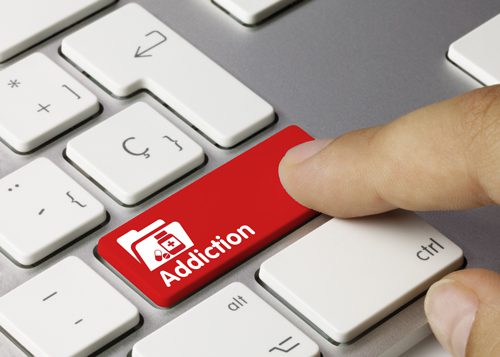 Are you at risk for cross-addiction?
Are you at risk for cross-addiction?
Cross-addiction occurs when a person in recovery finds themselves replacing one addiction with another. The biggest danger of substitute addictions is that they make the individual more prone to relapsing and returning to their original addiction.
Why is replacing one addiction with another so common?
Drugs, alcohol, gambling, sex, and eating all stimulate a part of the brain sometimes referred to as the “pleasure center.” A person in recovery for drug abuse can become addicted to another substance or activity very easily when that action causes the same chemical reaction in the brain that their drug(s) of choice did. Many people mistakenly think that they are safe from becoming addicted to something other than their primary substance of abuse.
One of the most frequent instances of replacing one addiction with another is the use of prescription medication. A person who has been working a solid recovery program and successfully staying sober can find themselves relapsing, sometimes after years, on a drug prescribed by their doctor to treat an unrelated condition. For example, a person in recovery from alcohol addiction might develop an anxiety condition. Their psychiatrist might prescribe an anti-anxiety medication such as Xanax or Ativan. Prescription drugs in this class are called benzodiazepines, and they very closely mimic alcohol when it comes to the way they stimulate the brain. Even taken for a short period, these medications can lead to abuse or a return to alcohol. The same situation is often seen with opioid pain medications.
In addiction to substance, activities can become substitute addictions. For example, sexual activity can become an addiction, as can overeating, gambling, shopping, exercise, or any activity that stimulates pleasure.
Tips for Being Proactive
How can you maintain your sobriety, safeguarding it from the dangers of cross-addiction?
When it comes to medication, speak up and advocate for yourself. Let your physicians and other healthcare providers know about your addiction history. Some alternative medications and practices can help keep your sobriety safe as long as you are willing to talk about it.
In addition, meet with a therapist if you think a particular behavior is developing into an addiction. If an activity you enjoy has started to interfere with your life, keeping you from responsibilities or from spending time with the people you love, take note. Note what happens if you try to stop or lessen the activity. Do you feel cravings for it? Do you try to hide this behavior from others for fear of judgment? These are all signs of a potential addiction.
We can start you on the road to recovery.
